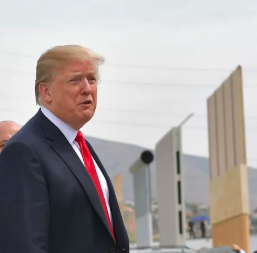President Trump will go down in history as a one-term president. And it’s looking like his choice of aides to implement his immigration policy is largely to blame.
How is this possible? Consider. In the recent election, President Trump’s margins with working-class voters slipped ever-so-slightly compared to 2016. And that slippage likely cost him key battleground states like Wisconsin, Michigan, and Pennsylvania, where non-college-educated voters — for whom immigration restriction is a top priority — make up a disproportionately high share of the electorate.
President Trump trounced over a dozen serious rivals in the 2016 primaries, and then defeated the Clinton machine in the general election, largely because he promised a sweeping overhaul of America’s immigration system. But his administration didn’t deliver, a few scattered policy victories notwithstanding.
This lack of progress is frustrating, but not surprising. Many of the president’s closest advisors actively subverted his immigration agenda. And as they say in Washington, “personnel is policy.” Had President Trump fired those saboteurs and hired professionals who share his vision on immigration, it’s possible he could have improved his margins enough to win the recent election.
From the moment he announced his candidacy, Trump made immigration reform his flagship issue. Among those who supported him in 2016, nearly 80 percent believed illegal immigration was a “very big” problem for our country. A whopping 96 percent trusted Trump would do the right thing in addressing that problem.
It seems that trust was mostly misplaced.
The policies governing chain migration and birthright citizenship are the same today as they were under Obama. Instead of making E-Verify mandatory for all employers, as candidate Trump promised, the White House budget actually proposed cutting funding for the program, which helps deter illegal hiring. And because of his staffers’ sloppy, half-hearted efforts to rescind Deferred Action for Childhood Arrivals (DACA) — an Obama-era policy allowing illegal aliens who entered the country as minors to live and work here — the program remains in effect.
Meanwhile, the administration’s unsuccessful attempt at large-scale immigration reform was a far cry from the pro-worker policies Trump had promised on the campaign trail. Instead, the new proposal prioritized younger, high-skill immigrants over less-skilled workers when distributing visas. This new merit-based system would have merely shifted the economic burdens of immigration from the working class onto the skilled middle-class.
What’s to explain the enormous gulf between President Trump’s 2016 lofty promises and his administration’s meager policy accomplishments? Most of it can be chalked up to poor staffing choices.
Take Jared Kushner, the president’s son-in-law and architect of his “merit-based” immigration plan, which has failed to gain any traction in Congress. Instead of crafting a reform package that protected workers from the wage-suppressing effects of immigration, Kushner did the opposite. His proposal was designed to please big businesses, which have long used cheap immigrant labor to enrich themselves at the expense of American workers.
This is not what Trump promised — but it’s exactly what one would expect from Kushner, a lifelong member of America’s corporate establishment.
Or consider Brooke Rollins, the president’s chief domestic policy advisor. As the former head of the Texas Public Policy Foundation, she argued in favor of amnestying illegal aliens. So it’s no surprise that we’ve seen such a tame approach to immigration during her tenure.
Or look at former Acting Homeland Security Secretary Elaine Duke, who recently admitted that she purposefully botched the rollback of DACA by refusing to include a policy rationale — an omission that Supreme Court Chief Justice John Roberts seized on to temporarily uphold the program.
Of course at times the president hired well. In 2019, he named Ken Cuccinelli as acting director of U.S. Citizenship and Immigration Services. Cuccinelli took on the Deep State bureaucracy and rammed through numerous reforms, including the administration’s recent overhaul of the H-1B guestworker program, which tech giants have repeatedly used to replace American workers.
Had the president hired more advisors like Cuccinelli who actually agree with him — and who understand the intricacies of Washington policymaking — from the beginning, things might have turned out very differently. Instead, it looks like ideological misfits like Kushner and Rollins and Deep-Staters like Duke cost the president a second term.

